Switch to the mobile version of this page.
Vermont's Independent Voice
- News
- Arts+Culture
- Home+Design
- Food
- Cannabis
- Music
- On Screen
- Events
- Jobs
- Obituaries
- Classifieds
- Personals
Browse News
Departments
Browse Arts + Culture
View All
local resources
Browse Food + Drink
View All
Browse Cannabis
View All
-
Culture

'Cannasations' Podcaster Kris Brown Aims to 'Humanize'…
-
True 802

A Burlington Cannabis Shop Plans to Host…
-
Business

Judge Tosses Burlington Cannabiz Owner's Lawsuit
-
Health + Fitness

Vermont's Cannabis Nurse Hotline Answers Health Questions…
-
Business

Waterbury Couple Buy Rare Vermont Cannabis License
Browse Music
View All
Browse On Screen
Browse Events
View All
Quick Links
Browse Classifieds
Browse Personals
-

If you're looking for "I Spys," dating or LTRs, this is your scene.
View Profiles
Special Reports
Pubs+More
The Conversation Artist: Podcaster Erica Heilman Seeks the Meaning of Life, One Interview at a Time
Published April 5, 2023 at 10:00 a.m. | Updated April 10, 2023 at 11:06 a.m.
On her acclaimed podcast "Rumble Strip," Erica Heilman sometimes sounds as if she's calling from a closet in which she has barricaded herself against an intruder. She wants to tell you that she loves you, and that she left the check for the plow guy on the counter, in case she doesn't make it out alive. Her voice is an incongruous combination of fragile and brusque, salty and wonderstruck. Heilman's friend Amelia Meath describes this particular timbre as "crotchety northeastern bad bitch" and also "hot college art teacher."
"Erica just is her voice," said Meath, who is one half of the indie duo Sylvan Esso. "She sounds like she's just here to tell you something, and if you're freaking smart enough, you'll listen."
Heilman, who lives in East Calais, lets other people do most of the talking on "Rumble Strip." Her shows are unsentimental explorations of human beings from all walks of life — her 10-year-old neighbor, defense attorneys, game wardens, ex-cons, a Vietnam vet who cuts hair in St. Johnsbury, a young woman from Hardwick looking for someone to do her makeup for a one-year anniversary date.
Each episode is a sonic postcard, rich with the sounds of central Vermont — birdsong, peepers, trucks with broken mufflers — and extremely local color; in her introduction to a show about singing Bonnie Tyler's "Total Eclipse of the Heart" at her 50th birthday party, Heilman reports: "We met in the East Calais Community Center, in the back of the post office." "Rumble Strip" shows are as long as Heilman feels they should be, which is usually between seven and 37 minutes. All of them return, in one way or another, to the question of how to cope with being alive.
Heilman doesn't waste time with perfunctory questions. She just wants to know, for instance, her 10-year-old neighbor's theory of the cosmos ("I think the whole solar system is in a tiny speck of space, which is in an atom of another world, and their whole space is an atom of another world, and that goes on in infinity," he explained). A less ravenous interviewer might have opened her recent show featuring whale biologist Tom Mustill with a gimme — "So, Tom, why whales?" Instead, Heilman goes straight to the sublime.
"The portal, it seems, is the eye — this ... this ... this ... tiny place on a bus-size creature," she begins. Other people would have edited out their stammering, but Heilman kept it in, allowing us to join her in bewilderment at the idea of whaleness. "What happens when you look at that eye?"
"Rumble Strip" has been accumulating underground praise since Heilman began recording it in her bedroom closet in 2013. Her pieces have aired on Vermont Public, where she works part time as a reporter and producer, and on other public radio programs around the country. As podcasting has morphed into a $23 billion industry, Heilman has remained resolutely small and weird, because she doesn't know how else to be.
"You know how people will say about some musicians, 'Oh, he's a drummer's drummer?'" said Jay Allison, a longtime public radio journalist and the founder of Transom, a workshop for independent media producers based in Woods Hole, Mass. "Erica is in that category. Her shows are all frickin' Fabergé eggs."
In 2020, Heilman's pandemic miniseries, "Our Show," a collage of listener-submitted recordings of their lives in isolation, was the Atlantic's No. 1 podcast of the year. But her big breakout moment came in November 2021 with "Finn and the Bell," a gorgeous and devastating story about a Walden teenager who died by suicide. The episode is a tapestry of the voices of people who loved Finn, a boy who liked coziness and embroidering and "had some notion of community being something inclusive and participatory," as Heilman described him. The episode won a Peabody, the highest award in broadcasting. In 2022, "Rumble Strip" earned a spot on the New York Times' year-end best list and was named the top podcast of the year by the New Yorker.
For Heilman, who is 53, this mainstream recognition has been a strange development. Her ambitions are fundamentally anti-careerist: She wants people to find themselves in those who are unlike them; she wants to make meandering, kaleidoscopic stories about the stuff of ordinary Vermont life. And she's already doing that — on a shoestring budget, with no studio or production assistant.
"I'm not trying to get to some new place anymore," Heilman said. "The fact of a rating or an award doesn't feel like anything. But if someone who was in a show calls to tell me that they really liked it? There's a surge of feeling that comes with knowing that the person feels seen. That is real joy."
True Love
When I first told Heilman that I wanted to write about her, I said I'd like to try to profile her the way she would profile herself. "I don't want this to be a 'Erica Heilman meets me for lunch, dressed in clothes' kind of thing," I explained to her in an email. A few hours later, Heilman wrote back: "How about we do the interview naked?"
We briefly batted around the idea of actually doing the interview naked, at a sauna in Hardwick. But intense heat isn't great for recording devices, and, as Heilman sensibly pointed out, "In writing, it's not going to sound any different in the sauna." So we decided to meet instead, fully clothed, at the very usual location of her house.
Heilman lives in a blue ranch up a steep dirt road with two kittens she adopted during the pandemic, Kenny and Mama. Sonically, not much is happening there these days, aside from the occasional ruckus of the cats doing violence to the furniture. Last fall, Heilman's son, Henry, started his first year at Middlebury College, and Heilman is still getting used to the quiet. In August, just before Henry left for school, she reran an old "Rumble Strip" episode, "The Neighborhood," about a group of kids in Randolph who get together almost every day in the summer to play hide-and-seek. The show captures the languor and the emotional intensity of childhood, and also some of its sharp edges. ("There are people who are my friends, but only my friends when they're not with other people," one kid tells Heilman matter-of-factly.)
Heilman was feeling wistful about Henry's looming departure, which she'd previewed when he left to work at a sleepaway camp last summer. In her new introduction to "The Neighborhood," she talked about what that had been like. "I remember the first day, really, the silence in the house was so loud in every room — just like it had substance to it," Heilman said over a chorus of crickets chirping in the background. "It was like something you could cut through."
When I arrived at Heilman's house, she was in the throes of making a to-do list, which, as of that morning, included thanking someone named Conrad in Connecticut for donating to "Rumble Strip." Standing in her mudroom in dark gray sweatpants and an oversize red sweater vest, her brown hair rumpled and staticky, she had the discombobulated air of someone who had just combed several beaches with a metal detector in search of a lost piece of jewelry. The word "elderberries" was written in pen on the palm of her hand, a reminder to deliver some of her frozen harvest from last summer to a friend. "My systems are at capacity, and my systems are falling apart," Heilman said.
Heilman is small, angular and endearingly perplexed around the eyes, which are brown and heavy-lidded and accentuated by unusually mobile brows. Her recent accolades have brought her more mail, she said, but not necessarily more money. She can't afford to hire someone to help her, and between her part-time gig with Vermont Public and making "Rumble Strip," she has limited reserves of time and patience for work-adjacent work, like fundraising, that might help her in that department. (Heilman wouldn't say on the record exactly how much money "Rumble Strip" gets each year in donations, but if she were paying herself hourly, she would be making well below minimum wage.)
Time is the invisible and essential ingredient in Heilman's work. You can't rush the process of building trust with a stranger; a three-hour conversation might yield only 20 minutes of what Heilman calls "good tape" — the moments of raw honesty in an interview that give you the vertiginous sensation of tumbling, headfirst, into somebody else's life — but every second of those three hours was necessary to get there.
"I fall in love with the people I talk with, and the goal is to get a listener to fall in love with them, too," Heilman said. "And I don't mean that you always have to like them. But love is something different, and love is always possible between any two people."
What Heilman means by "love" is both esoteric and not-so-esoteric. In one sense, she's talking about love as a practical social necessity, the glue that transforms people who live next door to each other into neighbors. "I'm very concerned about people's deep incuriosity about people who are unlike themselves," she said. "The place you want to be is at the party where everybody is. You want to be at the party where there are 90-year-olds and 5-year-olds. You want to be at the party where there's friggin' Alfred, the road commissioner, and Howard Norman, the writer. Everybody wants to be at that party. They just don't know it."
When Heilman was 12, she said, she was walking in a field one day near her childhood home in Charlotte when a feeling of inexplicable magnitude suddenly overtook her. "Everything just collapsed into a singular thing," Heilman said. "There was no then or now. There wasn't any time. There was nothing. I was nothing. It was a voidness that had a charge to it, and the only word to describe that charge was love. It was absolutely the most certain thing that's ever happened to me." "Rumble Strip," in a sense, is about her search for that feeling of transcendence, which she has located in the portal that opens when one person tries to understand another.
When she's interviewing someone, Heilman said, she can sometimes feel a change in the air pressure, as if another presence has entered the room. She casually describes this presence as God, though she said she has no affinity for any religious or spiritual tradition. What she means by God — "Yeah, like I'm going to define that," she joked — has more to do with the sensation that the boundaries between her and the other person have melted away, leaving only a pure feeling of connection.
Last fall, Heilman made a "Rumble Strip" episode about Armand Patoine, a gardener in Lyndonville. When Heilman asked to interview him, Patoine told me, he was unprepared for her kindness. "I asked her if she could stop at the store and get me two packs of cigarettes on her way over, and she did," he said. "That said a lot about her character to me."
The two sat in the chicken shed in Patoine's garden and talked for almost four hours — about growing flowers, about his relationship with God, about how gardening became his refuge from the cruelty of kids who made fun of him for being gay, a word Patoine wouldn't use to describe himself for many years.
"It was like talking to someone I've known all my life," Patoine said. At that time, he told me, he was in a deep depression, and his conversation with Heilman made him see himself in a new light — as someone interesting, someone worthy of love. "The bottom line is, she stopped me from committing suicide," he said.
Pieces of the Puzzle
When Heilman was growing up in Charlotte, she spent a lot of time watching her father, Dick, a radiologist at the University of Vermont Medical Center, chatting with one of their neighbors in the front yard. Dick would sidle up to him so they were both facing outward, looking in the same direction, and he would cup his chin in his hand and nod thoughtfully as his neighbor told him what was going on in his life. Heilman never wanted to be a doctor, she said, but she knew from a young age that she wanted to talk to people the way her father did.
Heilman loved performing, and she earned a BFA in musical theater at the University of Michigan. She had no desire to pursue acting as a career, she said. What she loved was being part of something that everyone in the room was experiencing at the same time. "That's a God moment," as Heilman put it.
In her twenties, she held a series of very odd jobs. She moved to Chicago with some friends and started an avant-garde theater group, which put on an extravagantly experimental version of Oklahoma! that involved leather miniskirts. She sold muffins. Eventually, Heilman landed an entry-level gig at PBS' "MacNeil/Lehrer NewsHour." She worked as a freelance television producer in New York City for a decade, at HBO, ABC News and WNET, a PBS affiliate. And then, one day, she realized that living in the city was making her into "the most eccentric version of myself," a perpetually angry bundle of neuroses, and she moved back to Vermont in 2002.
Not long after her son, Henry, was born, Heilman and Henry's father split up, and Heilman moved with Henry to East Calais. Through a friend, she found her way into a job as a private investigator. She drove around the state, interviewing people to help criminal defense attorneys with their cases, which satisfied some part of her desire to fall into other lives. But she still wasn't creating something of her own. She began making "Rumble Strip," she said, because she didn't want her son to grow up in the fug of her self-disappointment.
"I didn't know what the show was about. I didn't know anything. I just knew I needed to get started," she said. She taught herself the basics of audio production, and then she went out and talked to people.
For years, she said, nobody listened to "Rumble Strip," not even her own family members. "In middle school, people used to play her podcast on a big speaker in the lunchroom to make me uncomfortable," Henry said.
Making each show, as Heilman described it, was an act of faith in the utility of telling stories about woodstoves and muskrat hunters and Magic: The Gathering meetups, even if no one but Heilman was paying attention. "There was no reason to do it. Nobody was waiting for me," she said. "But somewhere between starting and finishing, there's this weird deliverance. It's 80 percent pain and confusion and existential crisis. There is always a chapter when it's not going to ever work and everything's over for me. But there's a little time near the end where you're like, I know what this is about. I think I captured it. I think I opened it. And that's the closest thing to religion there is."
In 2013, when Heilman started "Rumble Strip" — a name suggested by Henry's father's partner as an invitation to slow down and listen — podcasting was still a relatively niche thing. That is very much not the case anymore. As of January 2023, Apple had indexed more than 2.5 million podcasts on its platform. What happened was "Serial," the 12-part true crime podcast created in 2014 by the public radio program "This American Life," which launched an arms race. Every news outlet, every corporation, every subject in the universe with one or fewer mildly surprising elements suddenly needed a podcast.
"I can barely listen to most podcasts these days, because they're so formulaic," said Samantha Broun, a freelance audio and video producer who worked with Heilman on "Our Show" in 2020. "But Erica has been so committed to maintaining her voice."
Heilman has a finely calibrated ear for language, Allison noted; her diction on "Rumble Strip" is terse and deceptively simple. "She's got more in common, I think, with a poet than a storyteller," he said. (In her twenties, Heilman wrote a novel entirely without adjectives, for which she was admitted to the Bread Loaf Writers' Conference in Ripton. According to Heilman, she found the workshop unbearably pretentious and spent most of her time hiding in the woods.)
When Heilman found out she'd won the Peabody, Henry, sensing less enthusiasm than you might expect from someone who has just received the highest honor in her field, asked her why she didn't want to be more successful. Didn't she want to get bigger? Make more money? Turn her podcast into a TV show? But the whole point of "Rumble Strip" is that it isn't scalable; Heilman's quiet and unassuming exaltation of the mundane is its elevator pitch-resistant premise.
"The show is just inside of her. She can't externalize how to make it," said Meath, who worked with Heilman on a podcast about Sylvan Esso's 2020 album, Free Love. "Part of the joy of hearing her interview people is that you're hearing them respond to how she's seeing them. And you can't show somebody how to see like you see."
With "Rumble Strip," Heilman is free from the constraints of traditional journalism. She doesn't have to worry about being timely; she can talk to people simply because she finds them interesting. Underneath her insatiable curiosity, Heilman said, is desperation — a feeling that if she could only understand how other people make sense of their lives, she might come a little closer to making sense of hers. "I am trying to figure out what the fuck is going on," she said. "I believe everybody knows a piece of it, and if you just ask them the right questions, you might be able to put the puzzle together."
Allison told me that he often finds himself crying at the end of "Rumble Strip" episodes. "I really don't want to sound stupid, but I feel like I'm crying for the humanity of it, for the desire for connection," he said. "It's an effort of one person in a remote location to connect with the people around her, and then with the whole world. There's a futility and a beauty to that."
Three's a Crowd
One afternoon in early March, I accompanied Heilman on an interview in Hardwick. She was working on a "Rumble Strip" episode about a murder mystery dinner theater production organized by the Civic Standard, a community center and cultural experiment she started last year with Rose Friedman, who cofounded Modern Times Theater in Hardwick, and Tara Reese, the mother of Finn Rooney of "Finn and the Bell."
Based in the former offices of the Hardwick Gazette, the Civic Standard hosts opera-and-spaghetti dinners and formal dress swaps and karaoke nights in the name of bringing people together. The murder mystery show, one of its biggest undertakings yet, would involve 22 cast members from the Hardwick area, and Heilman hoped to interview as many of them as possible to document the making of the play. Her mission that afternoon was 77-year-old Carlotta Hayes, who had been cast in the show as the town cat lady.
My presence had required some negotiation — not with Hayes, who, Heilman told me, was on board with a journalist observing the interview, but with Heilman, who fiercely protects the inner sanctum of her work. "What happens in a room with two people is entirely different from what happens in a room with three people," she explained.
Heilman's work is affected by the slightest shifts in the mood surrounding a conversation; the wrong slant of light, an ill-timed push notification, a dog who suddenly needs to go out could all tamper with what her interlocutors say and how they say it, which then becomes manifest in her tape. In the end, she agreed to let me come along, based on her assessment of Hayes' tolerance for situational entropy. But we both understood that Heisenberg's principle would be at play: I couldn't watch her without disturbing the fragile equilibrium in which people feel comfortable enough to reveal themselves to a stranger. Also, Heilman was self-conscious, as she said she nearly always is at the outset of a project, about the fact that she had no idea what she was doing.
"Most people, when they make things, they plan what it's going to be, and then they go make the thing they plan," Heilman told me on the phone when we were arranging the Hayes interview. "And I don't know how to do that. I have to figure it out as I go along."
When we arrived at Hayes' apartment, Heilman's eye was immediately drawn to an enormous print of a lush, sun-dappled forest hanging on the wall above the futon. "I just feel like I've been waiting for that color for so long," she said. Hayes nodded. "I get really color starved," Hayes said. "I'm especially starved for red, which you're both wearing."
We settled into our places — Heilman on the futon next to Hayes with her feet tucked under her, holding out her microphone like a torch; me in a chair off to the side — and the interview began. First Heilman asked Hayes about her role in the play, and Hayes talked about Kit Petter, the self-appointed guardian of the town's felines. Hayes, who has done a lot of community theater, said she was studying "the profile of a cat owner/lover, because I'm one myself, and maybe I can't see it."
Heilman, wary of venturing into the psychological weeds of Kit Petter, gently turned the conversation back to Hayes. "So you're an actor," Heilman said, tilting her head to one side. "What does that mean?"
"It means this is something that I passionately do in a very sporadic, unpredictable way," Hayes said. "Because it all depends on how close the theater is to where I live. I don't have a car."
Heilman's eyes widened. "OK, many, many questions about cars. But when did you know that you're an actor?"
Hayes responded in the way a lot of people would: by talking about her upbringing. Her mother was a theater person, she said, and she grew up in "a house with a trunk that was full of costumes — clown costumes, tiger costumes, all kinds of stuff."
But Heilman didn't really want to hear about the trunk full of costumes. She wanted to hear about Hayes. "So you're an actor," she tried again. "What is the—" she paused for almost 10 seconds, searching for the right words. "What burden does it lift? Or, I mean, what is the joy? What — viscerally, what do you get? What do you get from it?"
"Relief from being a natural introvert," Hayes answered immediately, as if she'd been waiting a long time for someone to ask her that question.
The conversation soon drifted far from acting and into some of the most painful moments in Hayes' life. Heilman's work depends upon an inviolate trust between her and her interviewees, and the deal she makes with them is that she won't use anything in her stories that leaves them feeling too exposed. To honor that pact, I agreed not to include the personal details that Hayes shared with Heilman.
Over the course of the interview, which lasted nearly two hours, I noticed a gradual change in Hayes' posture. At the beginning, she had been engaged and attentive but perhaps slightly aloof; with each question, like a heliotropic plant, she seemed to be bending toward Heilman, basking in her attention, waiting to see what she would ask her next. The closest analogue to what Heilman does might be therapy, but this was somehow more intimate than a therapy session. There was no script, no objective, no money being exchanged. In America in 2023, people do not sit in their living rooms with strangers and talk about their loneliness and their thoughts on the afterlife. They often don't even do that with their friends. But they talk about those things with Heilman, because she listens with an uncanny ferocity.
"It's terrifying to be listened to that way," said her friend Allison, who was recently interviewed by Heilman for a "Rumble Strip" episode. "Erica says often that she wants to fall in love with the people she's talking to. I think she also wants people to fall in love with her. To me, there may be the secret to our salvation in that."
Life Imitates Art
There is a highly porous membrane between the world of "Rumble Strip" and Heilman's personal relationships. Meath and Heilman became friends and collaborators after Meath wrote to Heilman to thank her for her January 2017 episode about being seasonally depressed in the age of former president Donald Trump. Some of Heilman's closest friends, including Clare Dolan, creator of the Museum of Everyday Life in Glover, first were guests on the podcast.
"Being interviewed by Erica is a singular experience," Dolan said. "A nice feature of being interviewed by her, and of being friends with her, is that she makes you feel, even in your most abject state, that there's something interesting about you."
On our way out of Hardwick to visit Dolan one day in February, we stopped at the Buffalo Mountain Food Co-op. In the checkout line, Heilman ran into a woman she'd met while making a show about a group that meets in the basement of the Goddard College library to play Javanese gamelan. Gamelan, Heilman explained, is a huge percussion rig composed of more than 30 instruments. There is no Western-style harmony in gamelan; its music is a complex layering of sounds, produced by many people playing their individual parts.
The gamelan scene in the basement of the Goddard library, Heilman said, is "the weirdest-ass Plainfield thing you can imagine." She said the woman she'd just run into at the co-op will occasionally stop playing during performances, for no apparent reason, and commence knitting. "I love her," Heilman said.
The episode she made about the group, "Gamelan and Subjects of Consequence," ended up being only tangentially about gamelan and mostly about the people in the Goddard basement, who talked about yearning for childhood, outer space and the need for human contact in the depths of winter. As Heilman talked about the woman knitting during the performances, it struck me that gamelan is the perfect metaphor for Heilman's ideal community — a cacophony of individuals making sounds together, simultaneously alone and part of something bigger.
Later that afternoon, we went to see Forrest Foster, a dairy farmer in Hardwick, whom Heilman has featured several times on "Rumble Strip." We found Foster in his barn, beaming over a calf who'd just been born that morning.
"Are you going to keep him?" Heilman asked trepidatiously.
"From the coyotes," Foster said. Which apparently meant: no. "You can't raise 'em all."
Heilman, who had brought along her recording equipment, asked Foster if she could talk to him about how he keeps track of the minutiae of life. She explained that she found it very difficult to remember what she had to do and when she had to do it, and she felt she could benefit from learning about other people's organizational methods. "I really do think I have a problem," she said.
Foster reached a huge, weathered hand into his pocket and produced a huge, weathered wad of paper scraps, on which he'd written things like "Scout, she" (to remind himself that his friend's dog is not a boy) and, on an annihilated receipt of unidentifiable origin, "Merle Haggard married Kelly Williams one morning" (so he would remember to tell his partner, Karen, that Merle Haggard had married Kelly Williams in the morning).
Heilman squinted at the wad, which was at least an inch and a half thick. "How often do you pull this ... this ... pile of papers out of your pocket?" she asked.
"Oh, I look at stuff," Foster said. "Life is simple if you just don't let things bother you."
Since she met Foster last winter, Heilman has been going to his farm a few evenings a week to help him with his chores. She likes being around him and his animals, especially in the winter, when she tends to have little interest in doing anything at all. Seasonal depression is a leitmotif in Heilman's work; from mid-December through roughly mid-April, she said, she becomes a cranky recluse. As we drove along Route 15 out of Hardwick, she looked out the window at the mud-splattered snowbanks along the side of the road, the houses with Saran Wrapped windows, the tractors in the front yard half-buried in dingy slush.
"This is coming into one of my favorite times of year in Vermont, when everything just seems like shit," Heilman said. "All the projects that didn't get finished, that just got snowed in or ruined — now they're revealing themselves. Everybody looks their very worst, but we all do it together." One of the things she said she loves most about Town Meeting Day, held annually in early March, is how pale and bedraggled and salt-smeared everybody is.
Total Eclipse of the Heart
click to enlarge 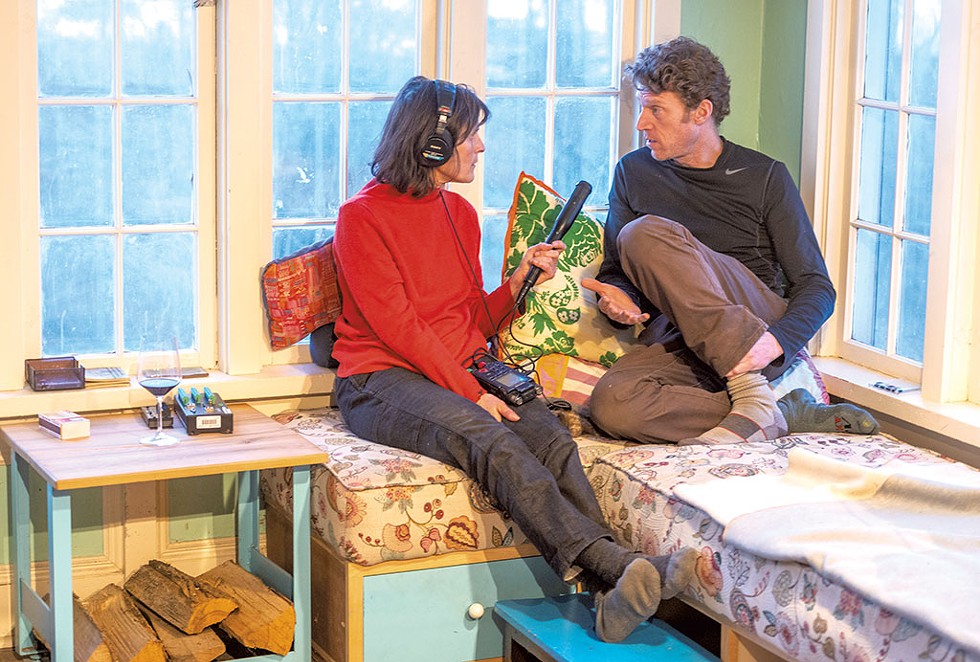

- Jeb Wallace-Brodeur
- Erica Heilman interviewing Jesse Cooper at his home in Plainfield
Heilman has a complicated relationship with some of the constructs of public life. Friedman, of the Civic Standard, helped me grasp something fundamental about her: She has no patience for artifice or abstraction, for anything that tries to blunt or contain the weird and contradictory impulses that make up a real person.
"I've noticed that her brain resists certain information," Friedman said. "I've told her repeatedly about organizations in the community, and every single time, it's new information for her. And it's because her mind is not interested in organizations or businesses or nonprofits. She is not interested in any false structure that's been set on people." What moves Heilman, she said, is human beings — their minds, their dreams, their memories and plans.
Last fall, Heilman drove around the Northeast Kingdom and asked people, point-blank, what social class they belonged to. She talked to a young woman who works at a general store, a photographer, a farmer, a carpenter and a Family Dollar employee, and then she turned their responses into a five-part series for Vermont Public, in which she allowed them to explain, in their own terms, what class meant to them. Heilman didn't want to hear any rants about politics, she told me, although she certainly got a few earfuls. She wanted to know how money, and having enough or not having enough, shaped people's lives. "I don't care about Trump," she said she told someone who had launched into a tirade. "Talk to me about your grandmother."
The author M.T. Anderson, Heilman's friend, neighbor and occasional "Rumble Strip" guest, thinks Heilman has stumbled upon a profound political solution, though she would probably recoil at that suggestion. "If you can just look at the people around you and see them as humans, if everyone could do that, that would be transformative," he said.
For Heilman's 50th birthday, she threw herself a party at the Montpelier Grange Hall and invited everyone she'd ever interviewed; this was the soirée, immortalized in a "Rumble Strip" episode, at which she performed her karaoke rendition of "Total Eclipse of the Heart." Anderson, who was one of her backing vocalists, remembers a moment at the party when he found himself standing between former gubernatorial candidate Christine Hallquist on one side and, on the other, a person who was completely nonverbal. This was the real shit, the kind of party where everyone wants to be, whether or not they know it yet.
"There were just people from every possible walk of life, swirling together and contra dancing in one room," Anderson said. "It was a dream of community."
Got something to say?
Send a letter to the editor
and we'll publish your feedback in print!
Tags: Culture, Seven Days Aloud, Seven Days Aloud, Seven Days Aloud, Seven Days Aloud, Seven Days Aloud, Seven Days Aloud, Seven Days Aloud, Seven Days Aloud, Seven Days Aloud, Seven Days Aloud, Seven Days Aloud, Seven Days Aloud, Seven Days Aloud, Seven Days Aloud, Seven Days Aloud, Seven Days Aloud, Seven Days Aloud, Seven Days Aloud, Seven Days Aloud, Seven Days Aloud, Seven Days Aloud, Erica Heilman, Rumble Strip, podcast, Seven Days Aloud, Video
About The Author

Chelsea Edgar
Bio:
Chelsea Edgar is a staff writer for Seven Days, and has written for BuzzFeed and Philadelphia magazine.
Chelsea Edgar is a staff writer for Seven Days, and has written for BuzzFeed and Philadelphia magazine.
More By This Author
Latest in Culture
Speaking of...
-

'Cannasations' Podcaster Kris Brown Aims to 'Humanize' Vermont’s Weed Culture
Apr 17, 2024 -

A New Podcast, 'Baby Carl's Happy Apocalypse,' Addresses Weighty Subjects Through the Eyes of an Infant
Feb 21, 2024 -

On 'True Crime Bullsh**,' Podcaster Josh Hallmark Hopes to ID More Victims of Serial Killer Israel Keyes
Aug 3, 2022 -

Podcaster Erica Heilman Wins Peabody for 'Finn and the Bell'
Jun 10, 2022 -

Williston Cookbook Author Molly Stevens Collaborates on New Podcast
Mar 15, 2022 - More »





























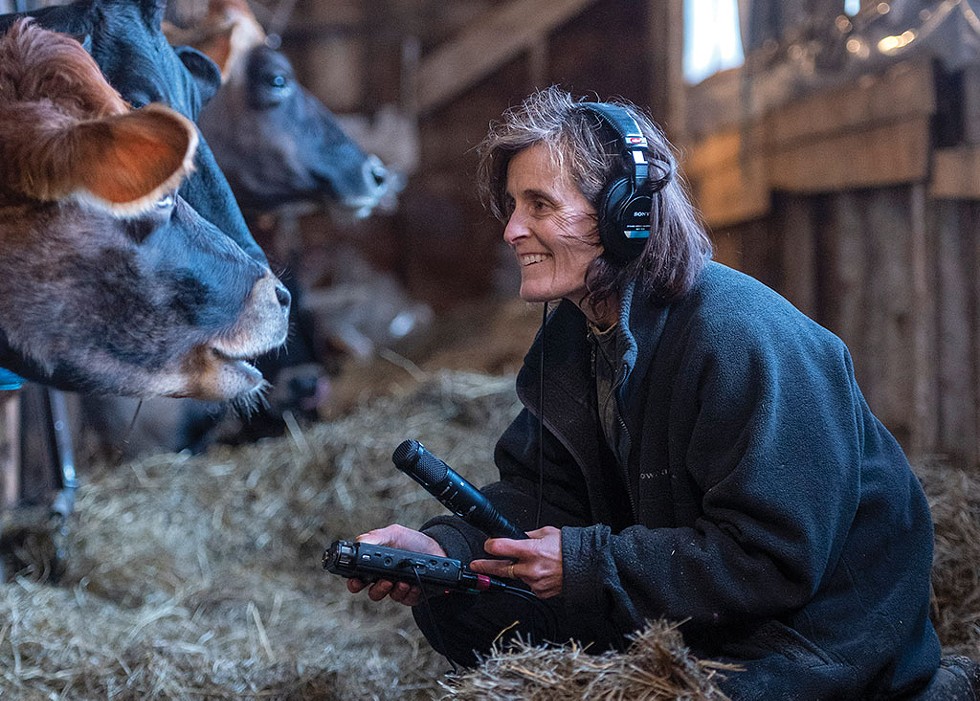
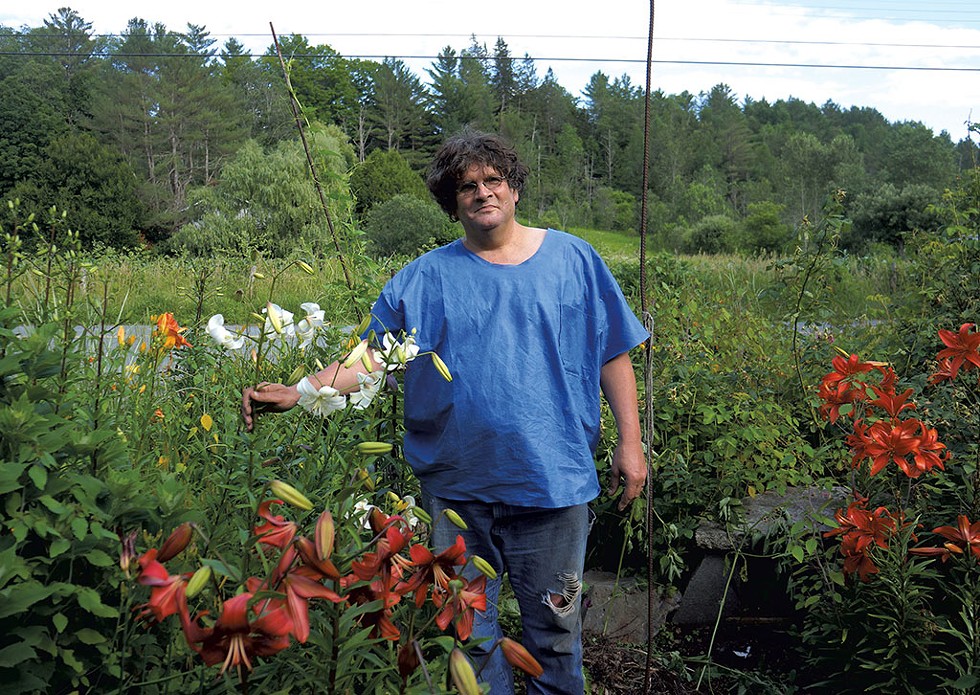
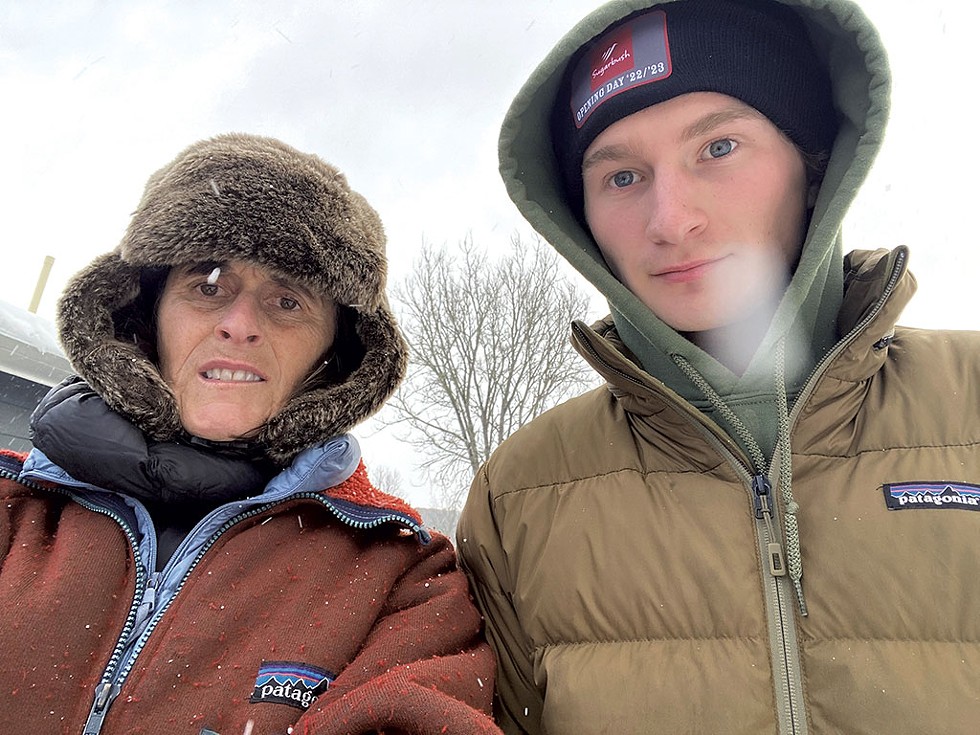
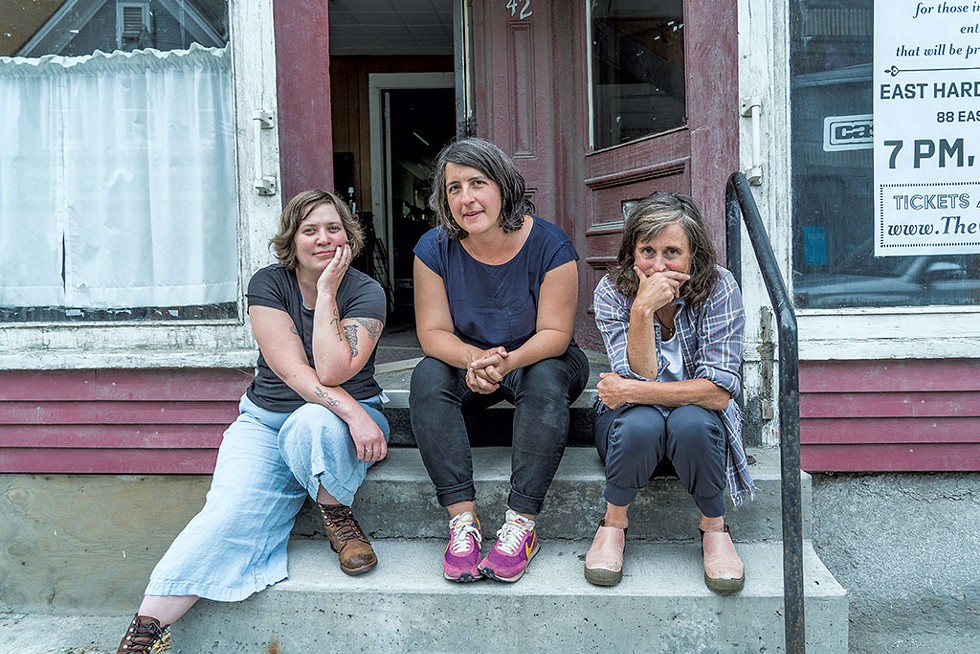
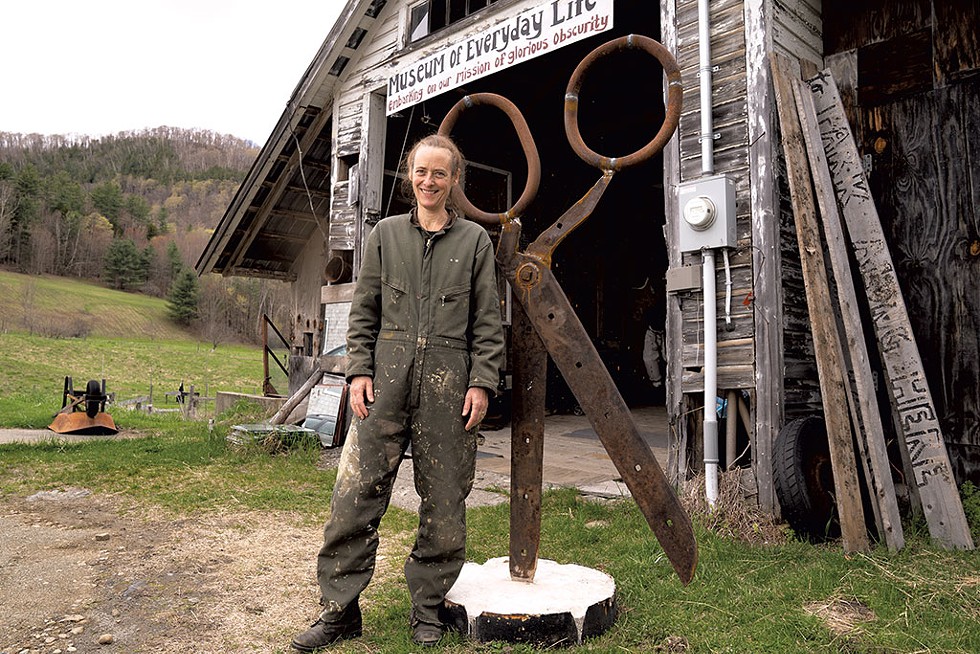
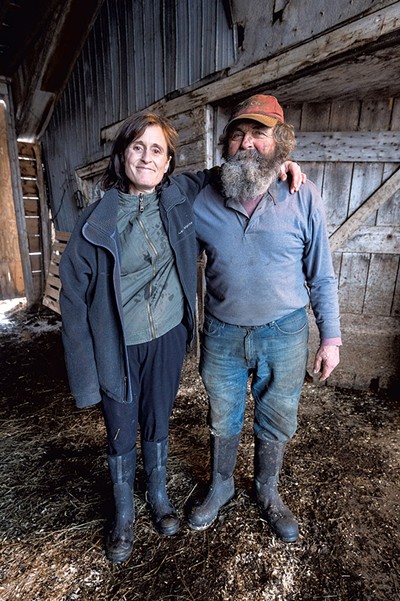







find, follow, fan us: